Ming Dynasty scholar Xu Cishu mentioned in his work Tea Commentary: "Qingming is too early, and the beginning of summer is too late. The time around Grain Rain is just right."
Grain Rain is the season for tea picking, as the folk saying goes, "Grain Rain, Grain Rain, pick tea in the rain." The tea picked before Grain Rain is tender and fragrant, with the best flavor, so tasting new tea during Grain Rain has become a tradition.
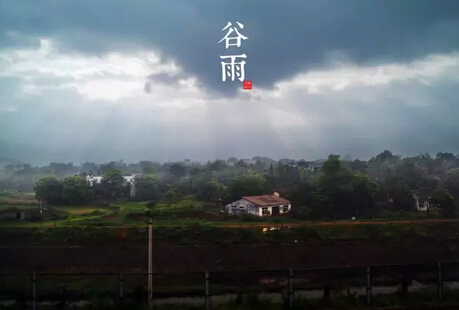
Literary poems praising "Grain Rain tea"
Tea-loving scholars and poets have composed many verses about it.
Lu Xisheng, a Tang Dynasty official, wrote in "Tea Slope": "In February, during Grain Rain in the mountains, half the slope is fragrant with fresh tea. It sobers the drunken and quenches thirst—cherish the new buds, picked and brewed."
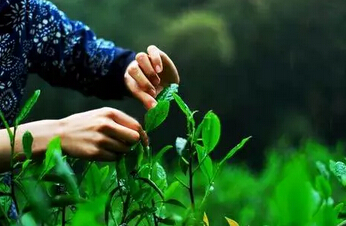
Yixing, known as Yangxian in ancient times, was famous for its premium tea during the Tang Dynasty. Tea picked before Grain Rain was especially prized. The late Tang poet-monk Qi Ji left behind three tea poems related to Grain Rain.
One of them is "Thanking Zhong Shangren for Sending Tea": "Before Grain Rain in spring mountains, we pick fragrant leaves together. The tender green is hard to fill a basket, and the clear air fades by evening. Invite a guest from the neighboring yard to brew tea with falling flower spring. Though far away, you sent it with effort—without you, another year would pass."
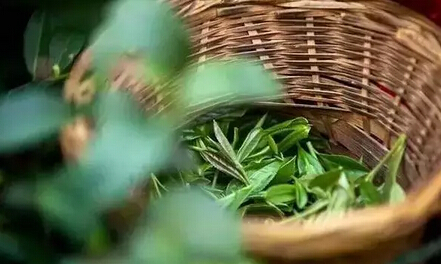
Amid the misty tea bushes, the fresh and tender wild tea is scarce, so much so that by dusk, the basket is still not full. Despite the rarity of Grain Rain tea, the poet eagerly invites a neighbor to taste the new brew.
Grain Rain tea clears the liver, brightens the eyes, and dispels dampness.
Nourished by rain and dew, Grain Rain tea is rich in nutrients and exudes a captivating aroma. It has a mellow and smooth taste, benefiting the body by unblocking stagnant energy: using tea to drive out dampness, prevent illness, and nourish vitality.
Legend says tea drunk on Grain Rain day reduces internal heat, wards off evil, and improves eyesight. Thus, southerners have the custom of picking tea on this day. Regardless of the weather, people go to the tea mountains to gather fresh leaves, praying for health.
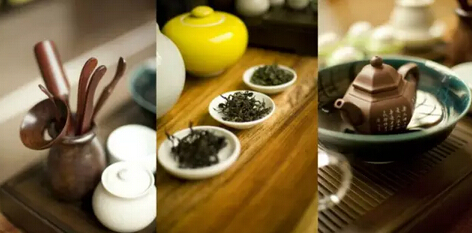
Nowadays, many追捧pre-Qingming tea, chasing its "early" harvest. But this "early" comes at a high price for buyers.
Pre-Qingming tea and Grain Rain tea differ greatly in price. Few buy pre-Qingming tea for personal consumption—most purchase it as gifts. Pre-Qingming tea looks appealing but lacks endurance in brewing.
In contrast, Grain Rain tea brews into an amber hue with a rich aroma, remaining flavorful after multiple infusions. Thus, tea connoisseurs often buy tea harvested one or two weeks before Grain Rain for personal enjoyment.
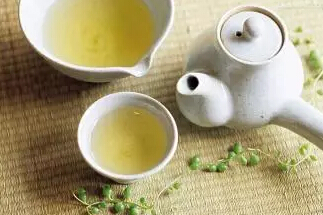
To tea farmers, pre-Qingming tea, despite its early market entry and high price, is not the true pinnacle of tea. Passed down through generations, tea makers prefer tea around Grain Rain, especially that picked on the day itself. Tea farmers reserve this tea for guests, rarely drinking it themselves.
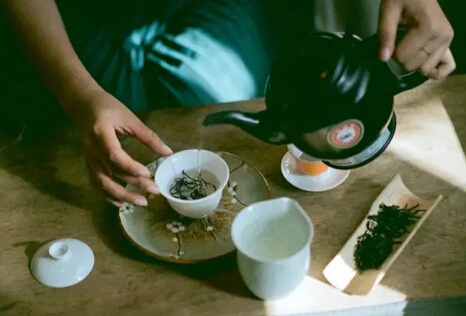
It is said that tea made on Grain Rain day is exceptionally beneficial, unblocking stagnant energy in the body—curing ailments if sick and preventing illness if healthy.
The Shennong's Classic of Materia Medica states: "Long-term consumption of pre-rain tea calms the mind, boosts energy... and promotes longevity."
Tea experts provide more convincing reasons: first, Grain Rain tea, influenced by temperature, develops fully, with thick leaves and rich juice, making it far more耐泡than pre-Qingming tea; second, its price is reasonable and worth the value, suiting ordinary consumers.
Drinking tea during Grain Rain is beneficial for health, so everyone might as well enjoy more tea during this season.